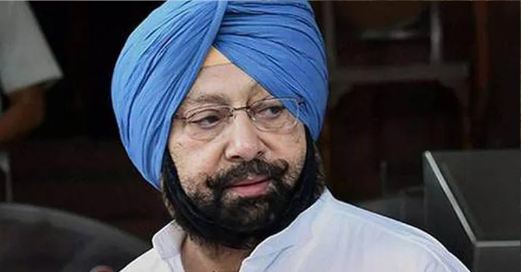Arhtiyas (middlemen between the government and farmers in the food procurement system) are a powerful force throughout the country. They have opposed all the reforms proposed/implemented by the union/state government to make the food procurement system transparent – be it direct transfer of payments or digital technology-enabled mandis. However, the Punjab government’s subservience to them seems to be the reason why even the middlemen are a part of the ongoing protests.
With the help of state-of-art technology, the middlemen can be cut down and the government can directly deal with farmers in the transfer of subsidies as well as grain procurement for PDS. However, the middlemen across the country have opposed all the reforms tooth and nail because it threatens their existence. Despite the fact that trading castes are a major vote bank for the party, the Modi government has not given up to the pressure tactics of arhtiyas and implemented the reforms.
However, the Punjab government is not ready to implement the system of online payments. For the upcoming wheat procurement season, the union government has nudged all the states to pay the farmers online, instead of paying them through arhtiyas, which was prevalent so far. The middlemen take a 2.5 per cent commission on payments and impose many hidden costs on procurement, taking the total profit of around 10 per cent just for facilitating the trade.
With the union government’s push for direct payment to ensure that farmers get the additional 10 per cent instead of the middlemen, most of the states including Haryana – where the arhtiya system is very prevalent – have agreed to come on board, but the Punjab government refused to do the same. “The practice of commission payable to arhatiyas is governed by statutory provisions of the Punjab Agriculture Produce Marketing Act, 1961, and the rules framed thereunder,” said a Punjab government official.
The Punjab government led by Amarinder Singh is not willing to amend the law that was passed 60 years ago for the benefit of farmers of the state and is passing the buck to the union government for everything. With the online system, the process of payments to farmers can be hastened, and the people who sell their produce on MSP will not have to wait for months for the money.
“With the complete implementation of online mode of payment for farmers, not only will they receive the payment in 48 hours into their accounts, but the Food Corporation of India (FCI) will also credit the state procurement agencies with the subsidy amount within 72 hours of purchase,” said the official.
Despite all these benefits, the Congress government in Punjab is not ready to amend the six decades-old law where middlemen are involved while Rahul Gandhi, the leader of the party, is touring throughout the country in order to build momentum against the farm laws.
The farmers of Punjab are suffering not because the Union government has brought the farm laws – because these laws are not even fully operational yet – but due to the lack of courage in successive Congress governments to implement reforms and remove the middlemen from the system.
Under the pressure from the middlemen, who fund both major parties – SAD and Congress – of the state, the Punjab government did not try to reform the agriculture pattern and kept the farmers of the state dependent on the union and state subsidies. Even now, despite the heavy push from the union government and evidence of benefits of online payment from other states, the arhtiya-funded Congress government of Punjab is not ready to move the amendments which will benefit the farmers.



























